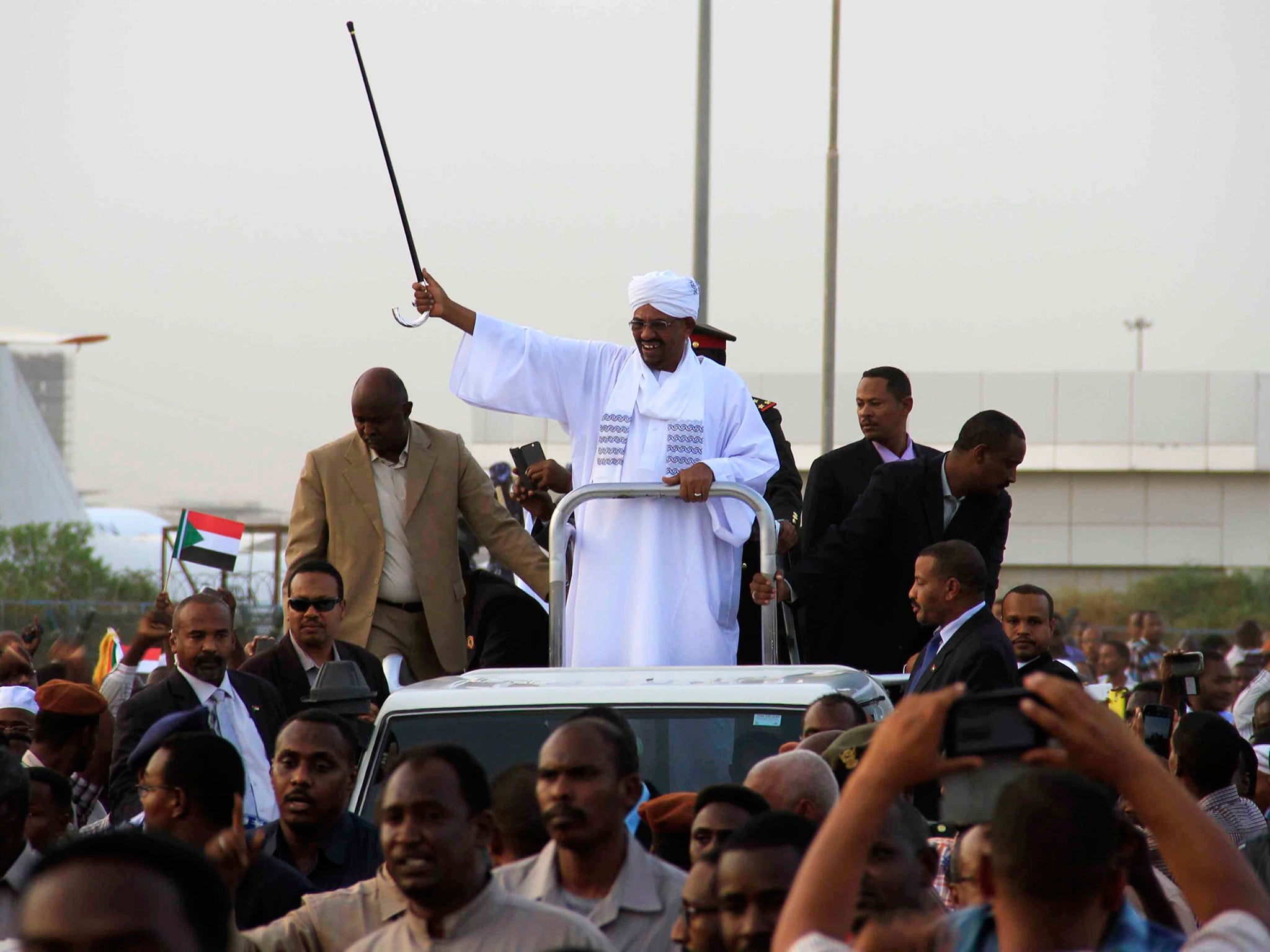This is no time for the UN to abandon Darfur
World View: A vote on 30 June will affect millions in Sudan. The world must not let them down now

As Sudan’s President, Omar al-Bashir, flew out of South Africa on Monday, contrails of the country’s shame left an indelible trace in his wake. Despite Mr Bashir being issued with two arrest warrants by the International Criminal Court (ICC) for crimes against humanity and genocide, South Africa offered him immunity to attend an African Union (AU) conference in Johannesburg last weekend.
As a signatory to the Rome Treaty, South Africa had a duty to arrest Mr Bashir and hand him over to the ICC to face trial. A local NGO secured a court order preventing the Sudanese leader from leaving the country but, while the court sat to decide Bashir’s fate, the fugitive surreptitiously fled the country.
The world once stood with ordinary South Africans in their struggle against state oppression and brutality. Yet when fellow Africans cry out in tortured anguish, broken by the serial rape of children, murder and starvation of civilians, they serially, cruelly, look the other way. By allowing Mr Bashir to escape, the African National Congress (ANC), whose founding principle was “to bring all ordinary Africans together as one people to defend their rights and freedoms”, betrayed African victims of genocide.
The ICC depends on member nations to enforce arrest warrants. Having watched Mr Bashir evade arrest for six years, the court appealed to the UN Security Council, which does have enforcement powers. The ICC has said that the Security Council’s failure to authorise any penalties against the Sudanese regime for non-compliance with the arrest warrant is preventing it from fulfilling its mandate of ending impunity.
In November, The Independent reported on the mass rape of 200 girls and women in the village of Tabit, in Darfur, northern Sudan, and called on the UN to conduct an independent investigation. It did not. Instead, Human Rights Watch produced a report in February, publishing findings that unequivocally impugned government-sponsored forces for the rapes.
Eight months on, the victims have received neither support nor counselling, and villagers live in conditions they describe as “an open prison”.
Ten months ago, the UN waved through a resolution that potentially paved the way for the withdrawal, or significant reduction of UN-African Union Mission in Darfur (Unamid) troops in the region. The force has already been reduced, with a mere 15,000 responsible for a region the size of France. In February, Unamid and UN officials began discussing the Darfur exit strategy.
In May, the UN Secretary General, Ban Ki-moon, recommended that the Security Council reauthorised Unamid’s mandate as it then stood. A Sudanese official I spoke to said that he was not reassured. He was fearful that Unamid would either be reduced or pulled out when it came to the Security Council vote on 30 June. A UN spokesperson told me that conditions on the ground did not merit a change in Unamid’s mandate but confirmed that “discussions about an exit strategy are ongoing”. He indicated that the emphasis was more on “streamlining” numbers rather than “pulling out”. A report issued by Mr Ban on 26 May announced that 790 posts had been abolished.
At an informal meeting of the Security Council on Friday, two Darfur activists spoke of deteriorating security in the region and made a heartfelt plea for members to take tougher action to stop the bloodshed. Afterwards, US Ambassador Samantha Power said: “Now is not the time to abandon the people of Darfur.” She also called for sanctions and arms embargoes to be enforced.
More than three million civilians in the region have been forced into refugee camps, almost 500,000 of whom were displaced in the past year. International Sudan expert Eric Reeves estimates that mortality rates could be as high as half a million. Unamid is clearly failing in its duty to protect civilians, but its presence has allowed at least some NGOs to operate. If Unamid goes or is further reduced, Mr Bashir will be free to accelerate his genocidal campaign.
Never before has a genocide been officially declared then the perpetrator, indicted for genocide by The Hague, been left in charge of victims’ safety. It is like putting a fox in charge of a hen house. Surrendering Mr Bashir to the ICC should be a condition of Unamid’s withdrawal.
Fortunately, there is some hope on the horizon, in the form of the UK’s incoming UN ambassador, Matthew Rycroft. He has publicly stated that “now is not the time to withdraw troops from Darfur”, urging instead the reconfiguration of Unamid so that it can focus on its core mandate to protect civilians. Could Mr Rycroft be the person whom history credits with bringing the Darfur genocide to an end? God knows there’s a situation vacant.
Patrick Cockburn is away
Join our commenting forum
Join thought-provoking conversations, follow other Independent readers and see their replies
Comments
Bookmark popover
Removed from bookmarks